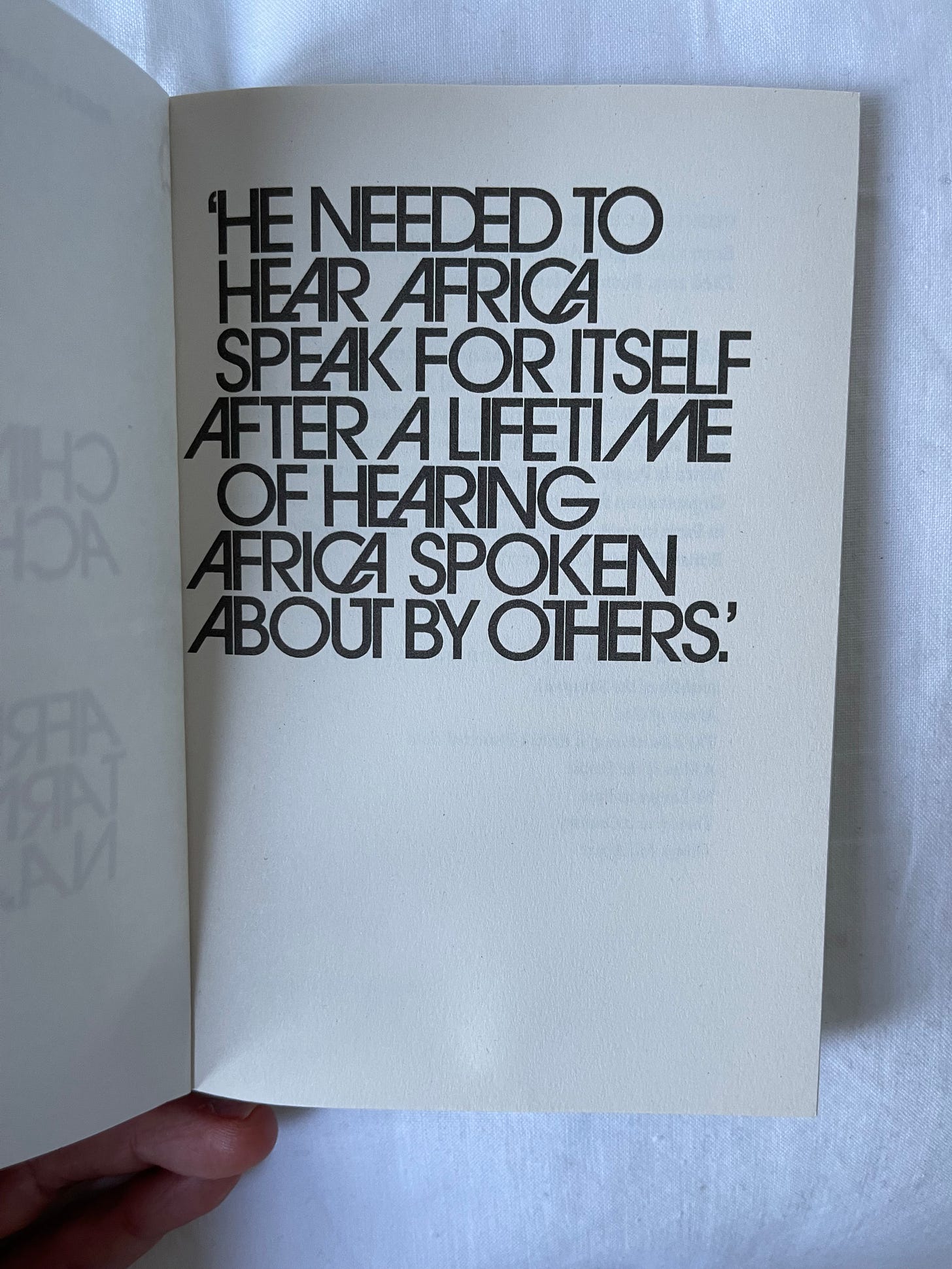12. Africa's Tarnished Name | Chinua Achebe
Part of the Penguin Modern series and my first book by Chinua Achebe.
Friends,
I grew up during Apartheid in South Africa and the history I was fed as a child was incredibly biased and colonially white-washed to the point that I never heard a single story from a Black person’s pov. I’m unlearning a lot of that in therapy during this pandemic and also re-educating myself by reading as many Black authors as I can this year. My limit for white stories has been mostly reached. I’m hungry for real history and to know the truth of what really went on.
Chinua Achebe was a Nigerian novelist, poet, and critic (RIP 2013). His first novel and magnum opus, Things Fall Apart, occupies a pivotal place in African literature and remains the most widely studied, translated and read African novel.
Parts I’ve highlighted as I’ve read:
“The first passport I ever carried described me as a ‘British Protected Person’, an unexciting identity embodied in a phrase that no-one was likely to die for. I don’t mean it was entirely devoid of emotive meaning. After all, ‘British’ meant you were located somewhere in the flaming red portion of the world that covered a quarter of the entire globe in those days and was called ‘the British Empire, where the sun never sets.’“
“My feeling towards Nigeria was one of profound disappointment. Not because mobs were hunting down and killing in the most savage manner innocent civilians in many parts of northern Nigeria, but because the federal government sat by and let it happen.”
“James Baldwin made an analogous point about Black people in America, descendants of Africa. In his essay ‘Fifth Avenue, Uptown’, he wrote:
Negroes want to be treated like men: a perfectly straightforward statement containing seven words. People who have mastered Kant, Hegel, Shakespeare, Marx, Freud and the Bible find this statement impenetrable.
The point of all this is to alert us to the image burden that Africa bears today and make us recognise how that image has molded contemporary attitudes, including perhaps our own, to that continent.”
“Let me round this up with a nice little coda. ‘Africa is people’ has another dimension. Africa believes in people, in cooperation with people. If the philosophical dictum of Descartes ‘I think, therefore I am’ represents a European individualistic ideal, the Bantu declaration ‘Umuntu ngumuntu ngabantu’ represents an African communal aspiration: ‘A human is human because of other humans.’”





